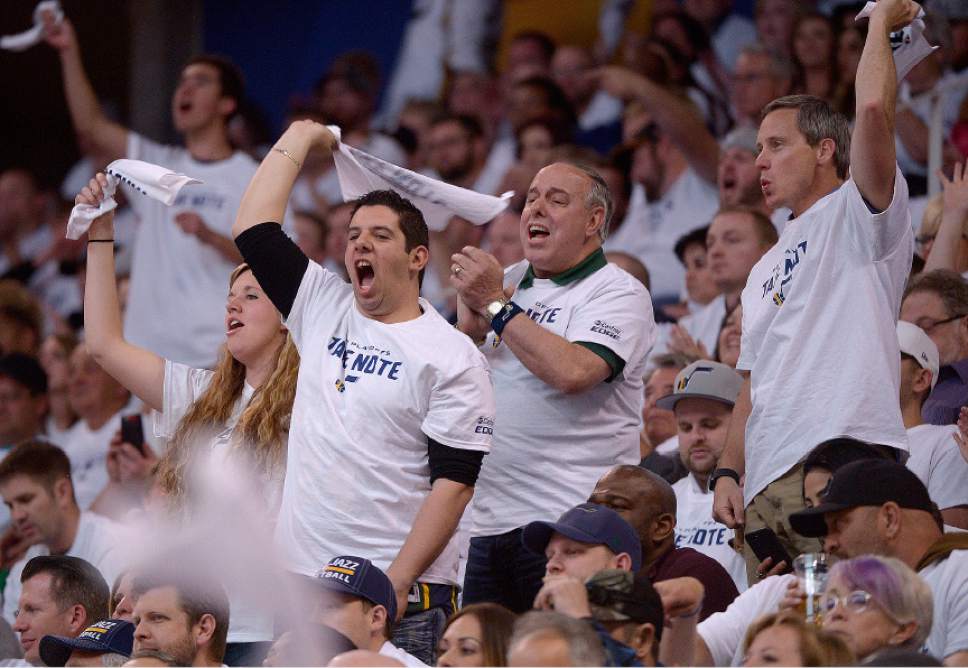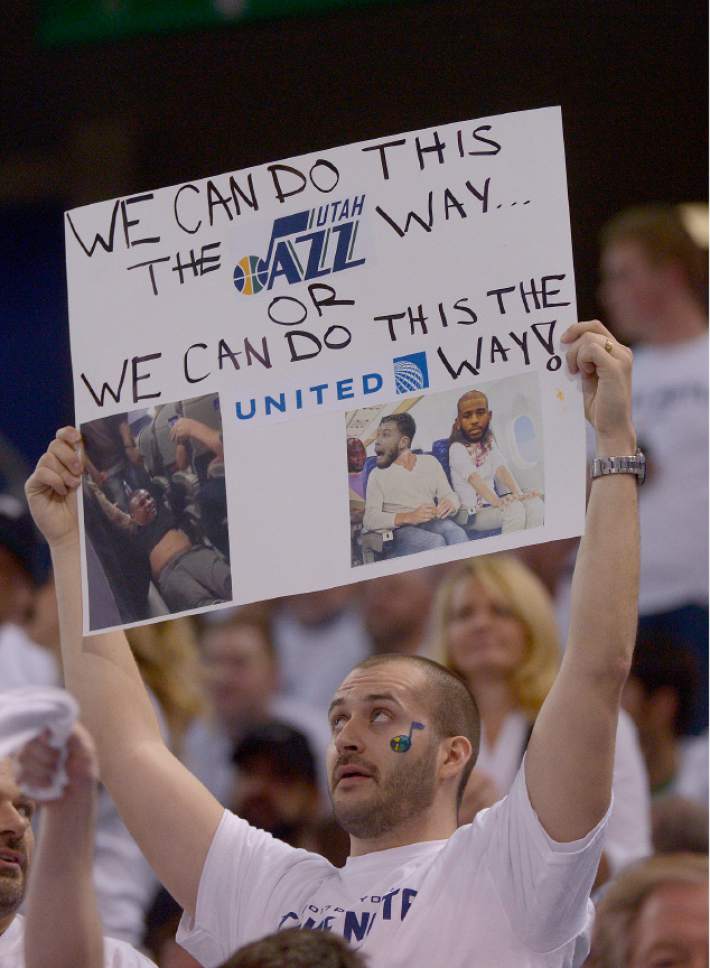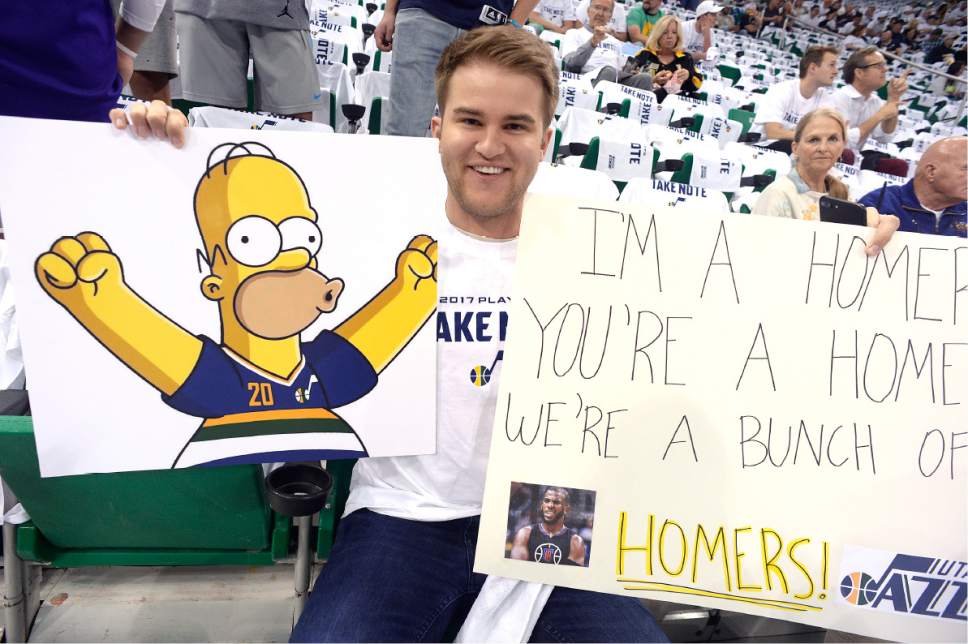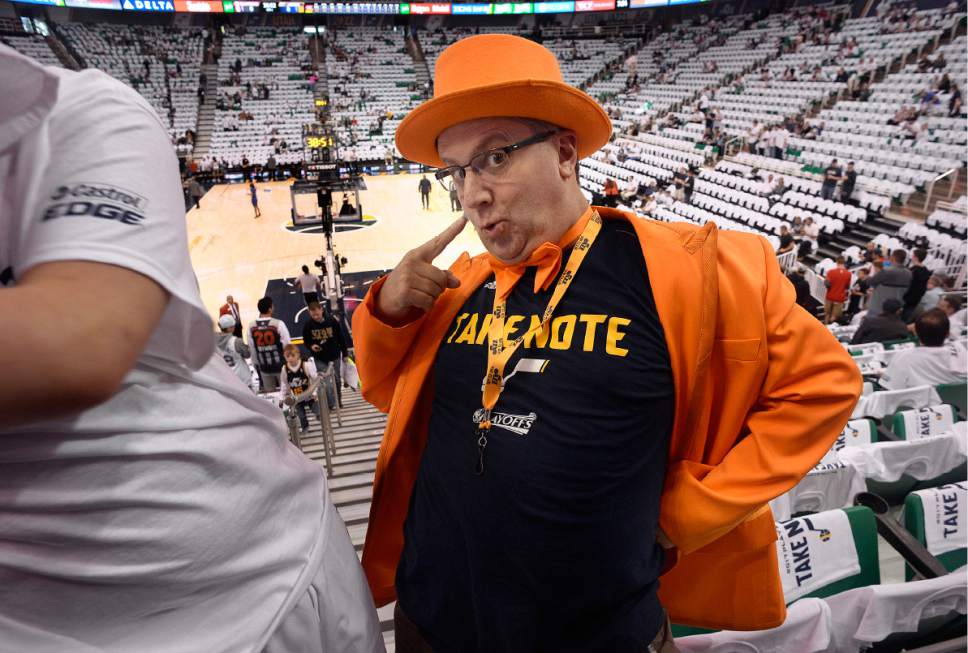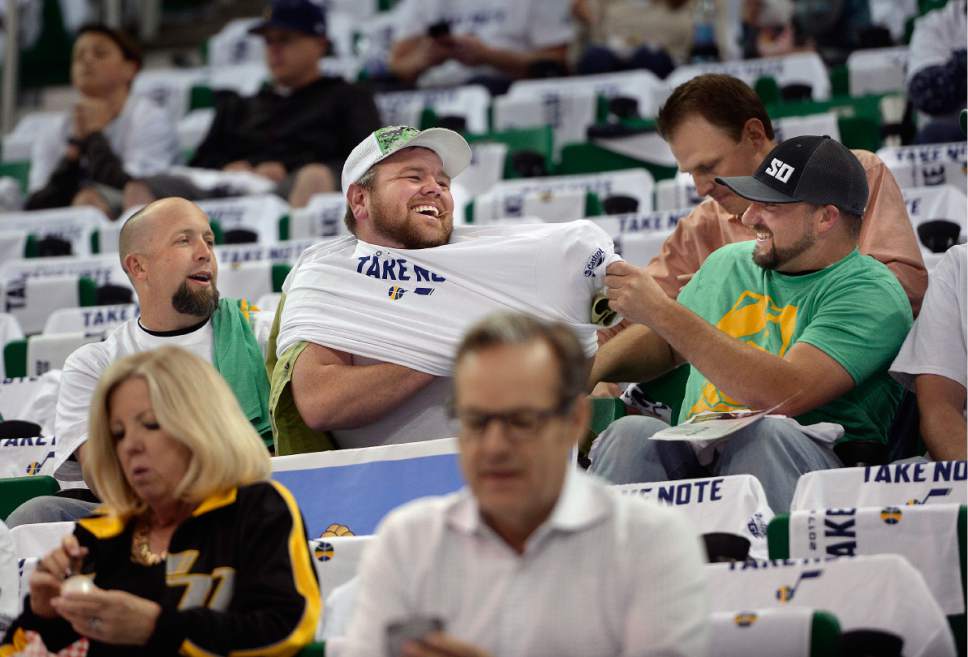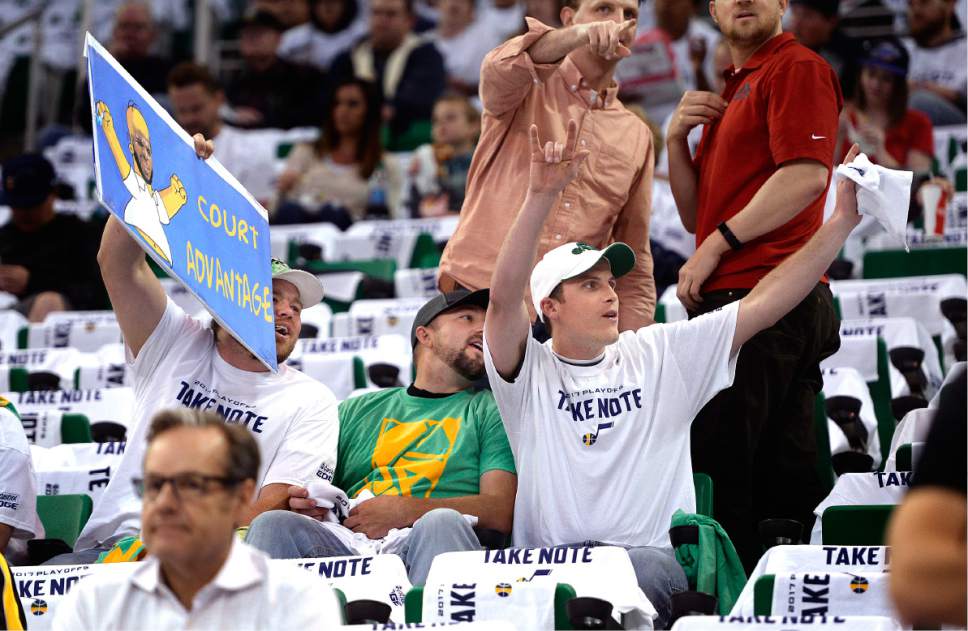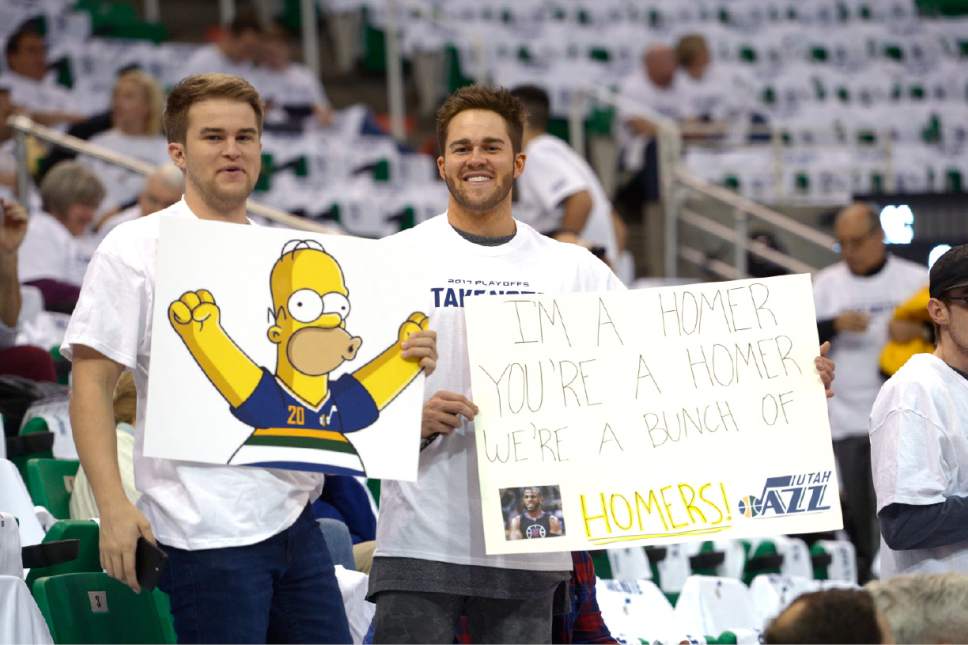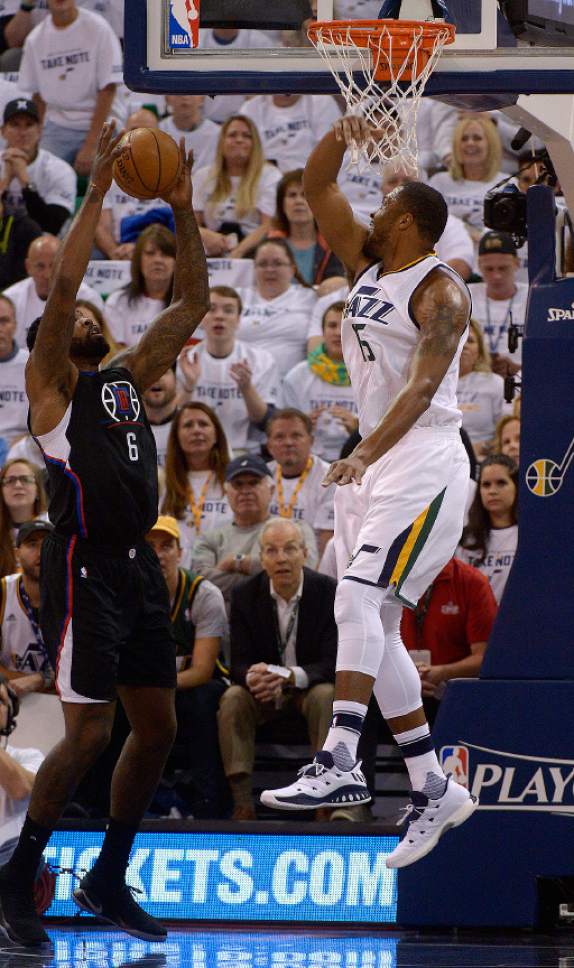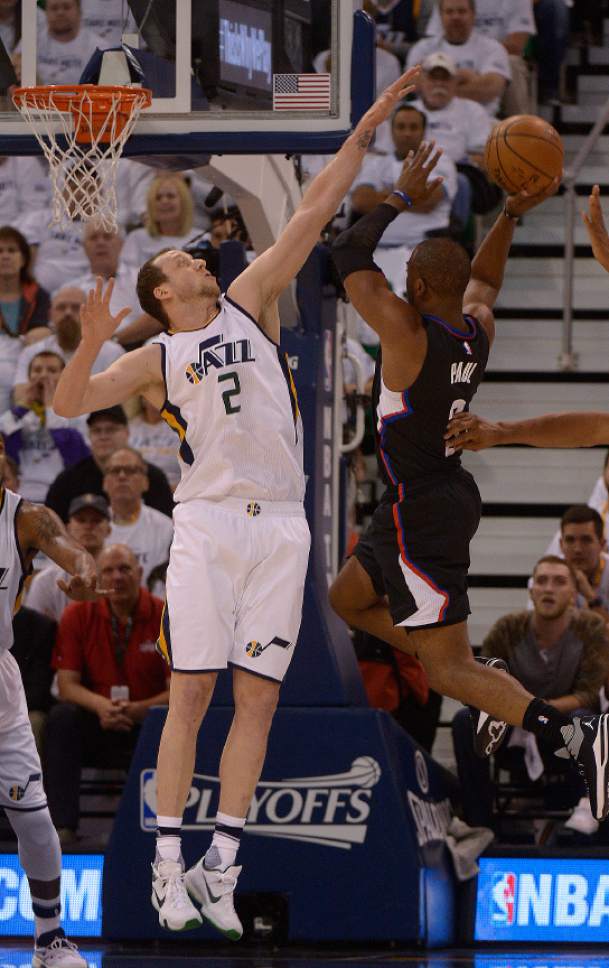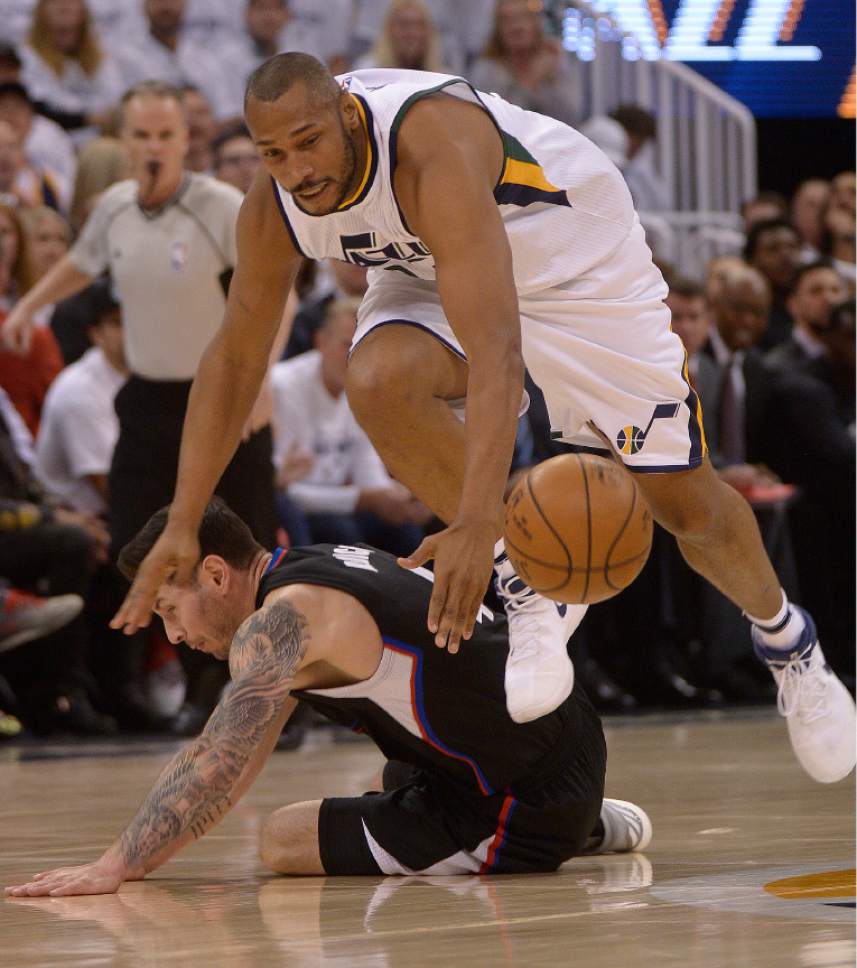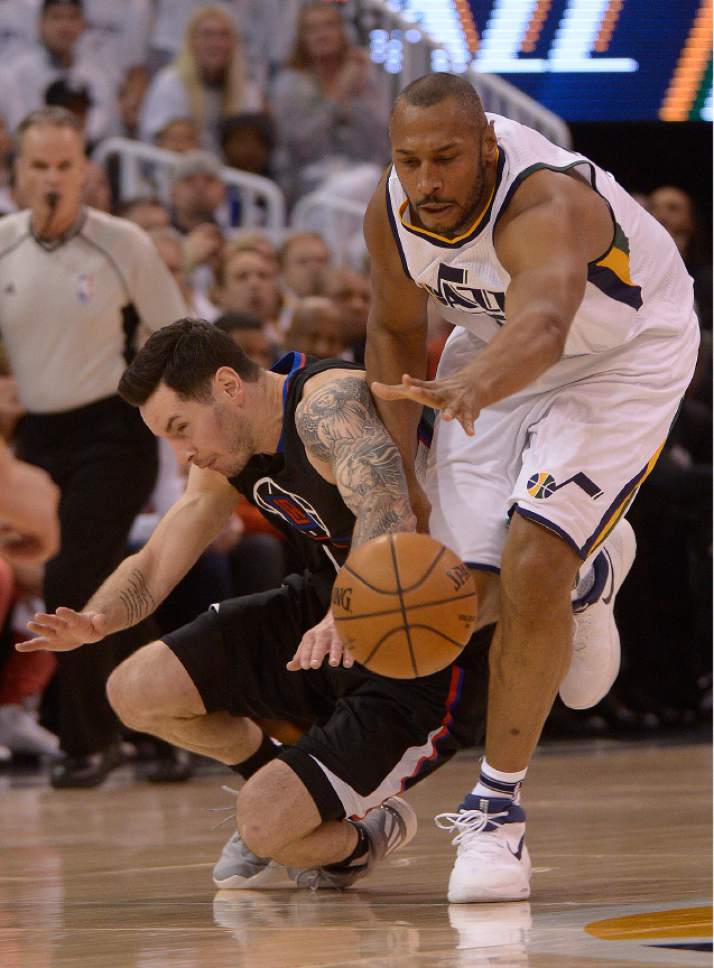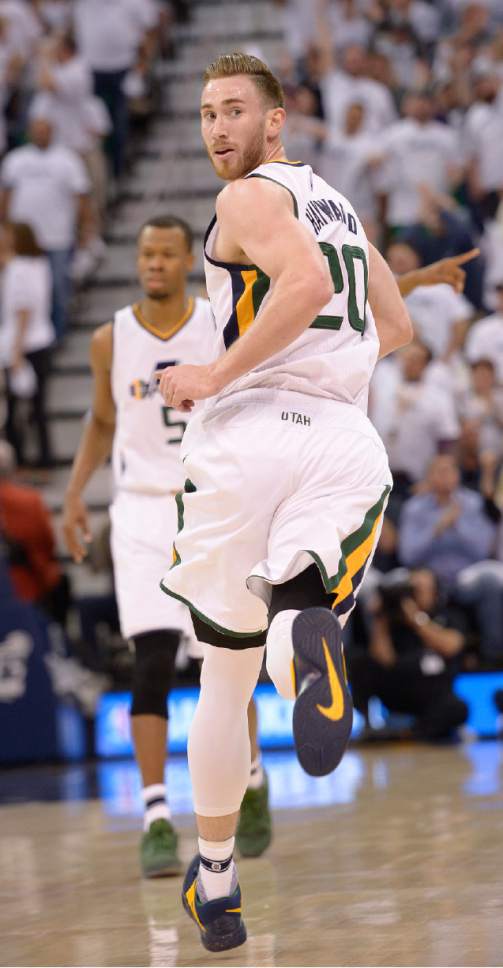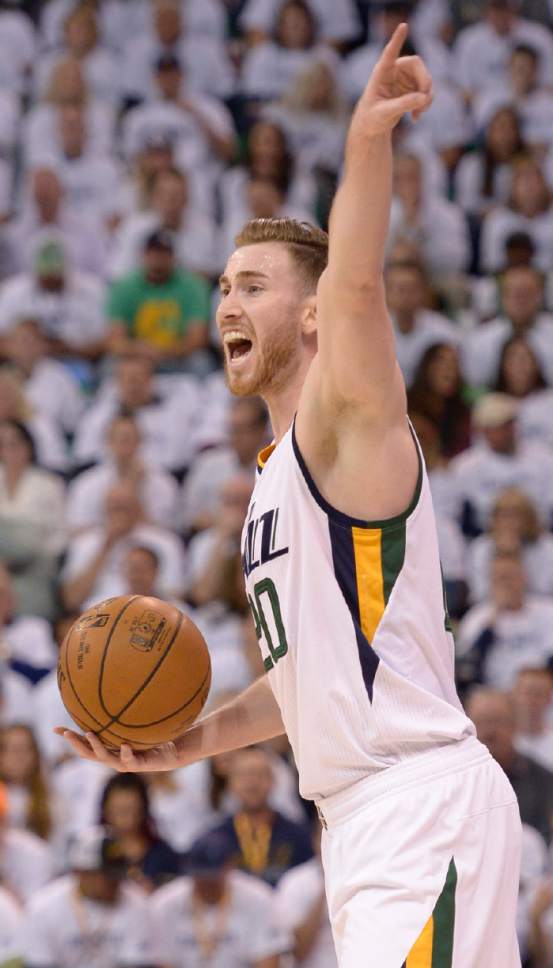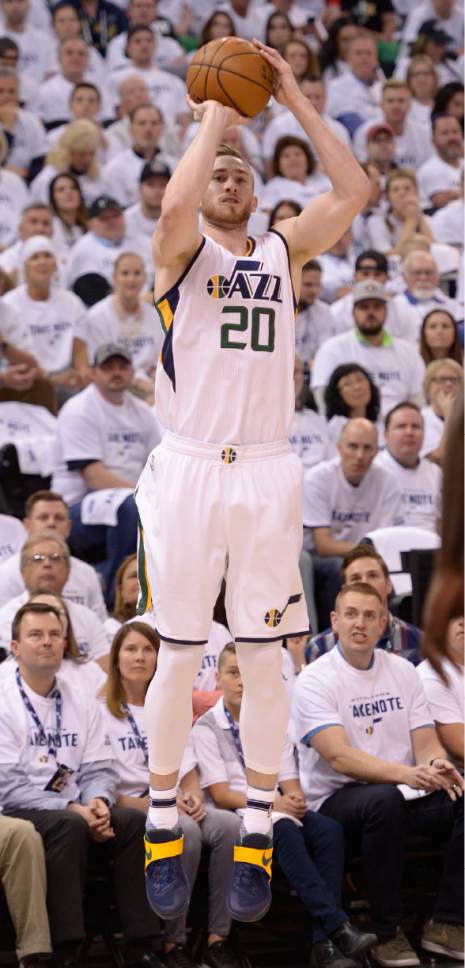Leah Hogsten | The Salt Lake Tribune
The Utah Jazz lead the Los Angeles Clippers after the first quarter during Game 3 of their
Leah Hogsten | The Salt Lake Tribune
The Utah Jazz lead the Los Angeles Clippers after the first quarter during Game 3 of their
Leah Hogsten | The Salt Lake Tribune
l-r Brothers Justen Nuffer and David Nuffer get ready to celebrate David's birthday as &qu
Scott Sommerdorf | The Salt Lake Tribune
Jazz fan Spencer Richards riffs off the "Homer" name-calling with his signs pri
Scott Sommerdorf | The Salt Lake Tribune
Darren Wible from Layton strikes a pose prior to Game 3 of the Western Conference playoff
Scott Sommerdorf | The Salt Lake Tribune
A Jazz fan gets a little help putting on one of the "Take Note" t-shirts that w
Scott Sommerdorf | The Salt Lake Tribune
Jazz fans get the attention of some Clippers fans prior to Game 3 of the Western Conferen
Leah Hogsten | The Salt Lake Tribune
The arena is filled with fans holding signs celebrating Homer Simpson signs as a result of
Leah Hogsten | The Salt Lake Tribune
Utah Jazz forward Derrick Favors (15) denies LA Clippers center DeAndre Jordan (6). The Ut
Leah Hogsten | The Salt Lake Tribune
Utah Jazz forward Joe Ingles (2) denies LA Clippers guard Chris Paul (3). The Utah Jazz le
Leah Hogsten | The Salt Lake Tribune
Utah Jazz center Boris Diaw (33) hits the deck trying to get to the ball before LA Clipper
Leah Hogsten | The Salt Lake Tribune
Utah Jazz center Boris Diaw (33) hits the deck trying to get to the ball before LA Clipper
Leah Hogsten | The Salt Lake Tribune
Utah Jazz forward Gordon Hayward (20) looks back after sinking a 3-pointer. The Utah Jazz
Leah Hogsten | The Salt Lake Tribune
Utah Jazz forward Gordon Hayward (20) calls the play. The Utah Jazz lead the Los Angeles C
Leah Hogsten | The Salt Lake Tribune
Utah Jazz forward Gordon Hayward (20) fires off a 3-pointer. The Utah Jazz lead the Los An
Leah Hogsten | The Salt Lake Tribune
The Utah Jazz lead the Los Angeles Clippers after the first quarter during Game 3 of their first-round Western Conference playoff series at Vivint Smart Home Arena, Friday, April 21, 2017.
Leah Hogsten | The Salt Lake Tribune
The Utah Jazz lead the Los Angeles Clippers after the first quarter during Game 3 of their first-round Western Conference playoff series at Vivint Smart Home Arena, Friday, April 21, 2017.
Leah Hogsten | The Salt Lake Tribune
l-r Brothers Justen Nuffer and David Nuffer get ready to celebrate David's birthday as "superfan" style as the Utah Jazz host the Los Angeles Clippers during Game 3 of their first-round Western Conference playoff series at Vivint Smart Home Arena, Friday, April 21, 2017.
Scott Sommerdorf | The Salt Lake Tribune
Jazz fan Spencer Richards riffs off the "Homer" name-calling with his signs prior to Game 3 of the Western Conference playoff series, Friday, April 21, 2017.
Scott Sommerdorf | The Salt Lake Tribune
Darren Wible from Layton strikes a pose prior to Game 3 of the Western Conference playoff series, Friday, April 21, 2017.
Scott Sommerdorf | The Salt Lake Tribune
A Jazz fan gets a little help putting on one of the "Take Note" t-shirts that were placed on each seat prior to Game 3 of the Western Conference playoff series,Friday, April 21, 2017.
Scott Sommerdorf | The Salt Lake Tribune
Jazz fans get the attention of some Clippers fans prior to Game 3 of the Western Conference playoff series, Friday, April 21, 2017.
Leah Hogsten | The Salt Lake Tribune
The arena is filled with fans holding signs celebrating Homer Simpson signs as a result of Clippers player Chris Paul calling Jazz fans "homers" earlier in the week. The Utah Jazz host the Los Angeles Clippers during Game 3 of their first-round Western Conference playoff series at Vivint Smart Home Arena, Friday, April 21, 2017.
Leah Hogsten | The Salt Lake Tribune
Utah Jazz forward Derrick Favors (15) denies LA Clippers center DeAndre Jordan (6). The Utah Jazz lead the Los Angeles Clippers after the first quarter during Game 3 of their first-round Western Conference playoff series at Vivint Smart Home Arena, Friday, April 21, 2017.
Leah Hogsten | The Salt Lake Tribune
Utah Jazz forward Joe Ingles (2) denies LA Clippers guard Chris Paul (3). The Utah Jazz lead the Los Angeles Clippers after the first quarter during Game 3 of their first-round Western Conference playoff series at Vivint Smart Home Arena, Friday, April 21, 2017.
Leah Hogsten | The Salt Lake Tribune
Utah Jazz center Boris Diaw (33) hits the deck trying to get to the ball before LA Clippers guard JJ Redick (4). The Utah Jazz lead the Los Angeles Clippers after the first quarter during Game 3 of their first-round Western Conference playoff series at Vivint Smart Home Arena, Friday, April 21, 2017.
Leah Hogsten | The Salt Lake Tribune
Utah Jazz center Boris Diaw (33) hits the deck trying to get to the ball before LA Clippers guard JJ Redick (4). The Utah Jazz lead the Los Angeles Clippers after the first quarter during Game 3 of their first-round Western Conference playoff series at Vivint Smart Home Arena, Friday, April 21, 2017.
Leah Hogsten | The Salt Lake Tribune
Utah Jazz forward Gordon Hayward (20) looks back after sinking a 3-pointer. The Utah Jazz lead the Los Angeles Clippers after the first quarter during Game 3 of their first-round Western Conference playoff series at Vivint Smart Home Arena, Friday, April 21, 2017.
Leah Hogsten | The Salt Lake Tribune
Utah Jazz forward Gordon Hayward (20) calls the play. The Utah Jazz lead the Los Angeles Clippers after the first quarter during Game 3 of their first-round Western Conference playoff series at Vivint Smart Home Arena, Friday, April 21, 2017.
Leah Hogsten | The Salt Lake Tribune
Utah Jazz forward Gordon Hayward (20) fires off a 3-pointer. The Utah Jazz lead the Los Angeles Clippers after the first quarter during Game 3 of their first-round Western Conference playoff series at Vivint Smart Home Arena, Friday, April 21, 2017.


